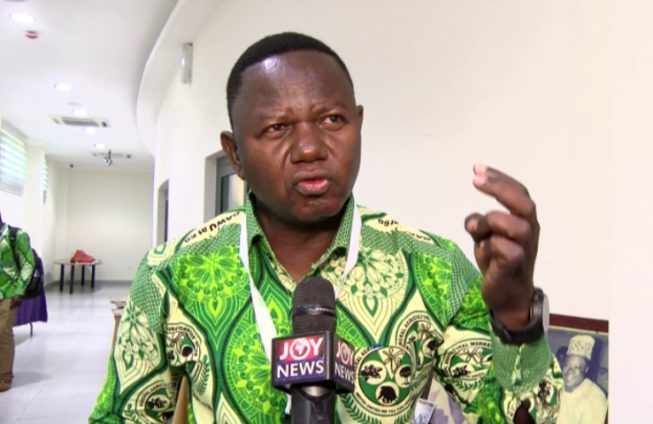The General Agricultural Workers Union (GAWU) has said the severe shortage of vegetables and its resultant hike in prices are due to illegal mining activities in Ghana.
Mr Edward Kareweh, the General Secretary of GAWU, said the areas that serve as the vegetable production hub of the country are mostly the communities where galamsey is rife, making it difficult for farmers to cultivate crops in the country.
He told the Ghana News Agency (GNA) in an interview that although natural factors such as changes in season were a contributing factor, the consequences of some policies in the sector were hindering the process of food production in the country.
He said galamsey had led to soil erosion, water pollution, land destruction, heavy metal contamination, and soil infertility, cautioning that the situation was going to be worse if appropriate measures were not taken.
The GAWU General Secretary mentioned that the effects of galamsey were far-reaching and had significant environmental, social, and economic impacts on communities and the country, and therefore called on policymakers to implement sustainable mining practices to avert any food insecurity.
“Vegetables are delicate crops; you need clean water to grow vegetables, but you don’t necessarily need clean water to grow cocoa or oil palm because the water that runs under it must not necessarily be the one that we can drink,” he said.
He said the water needed for vegetable production should almost be equivalent to drinking water; however, the activities of people engaged in galamsey had destroyed most of the farms, and those surviving fell into danger during the rainy season when floods flowed into the vegetable farms.
Mr Kareweh said in addition to galamsey, there were also some policies that worsened the situation instead of addressing the gaps that had been created by nature.
“Tomatoes generally should not be in abundance like they were in January and February, but you have to look at the marginal increase. That is why, at this time, as opposed to previously, every market day the price goes up and becomes far more costly than before, and that is what we need to investigate,” Mr Kareweh said.
He lamented the high cost of products, land preparation, and pesticides, among others, which are critical to vegetable production and negatively affect development in the agricultural sector of the country.
Latest Stories
-
Baltasar Coin becomes first Ghanaian meme coin to hit DEX Screener at $100K market cap
38 minutes -
EC blames re-collation of disputed results on widespread lawlessness by party supporters
53 minutes -
Top 20 Ghanaian songs released in 2024
1 hour -
Beating Messi’s Inter Miami to MLS Cup feels amazing – Joseph Paintsil
1 hour -
NDC administration will reverse all ‘last-minute’ gov’t employee promotions – Asiedu Nketiah
2 hours -
Kudus sights ‘authority and kingship’ for elephant stool celebration
2 hours -
We’ll embrace cutting-edge technologies to address emerging healthcare needs – Prof. Antwi-Kusi
2 hours -
Nana Aba Anamoah, Cwesi Oteng special guests for Philip Nai and Friends’ charity event
2 hours -
Environmental protection officers receive training on how to tackle climate change
2 hours -
CLOGSAG vows to resist partisan appointments in Civil, Local Government Service
4 hours -
Peasant Farmers Association welcomes Mahama’s move to rename Agric Ministry
4 hours -
NDC grateful to chiefs, people of Bono Region -Asiedu Nketia
4 hours -
Ban on smoking in public: FDA engages food service establishments on compliance
4 hours -
Mahama’s administration to consider opening Ghana’s Mission in Budapest
4 hours -
GEPA commits to building robust systems that empower MSMEs
4 hours

